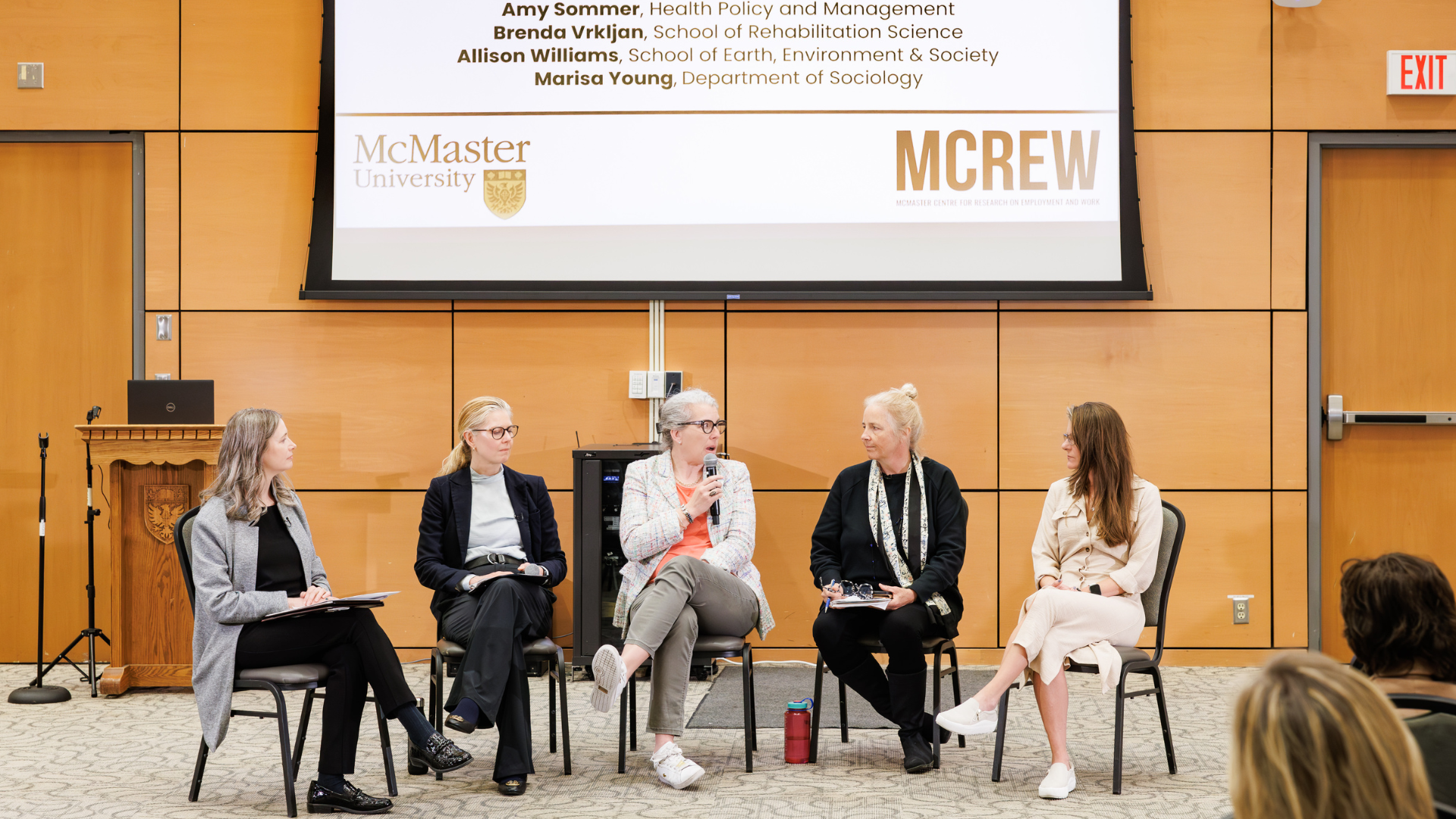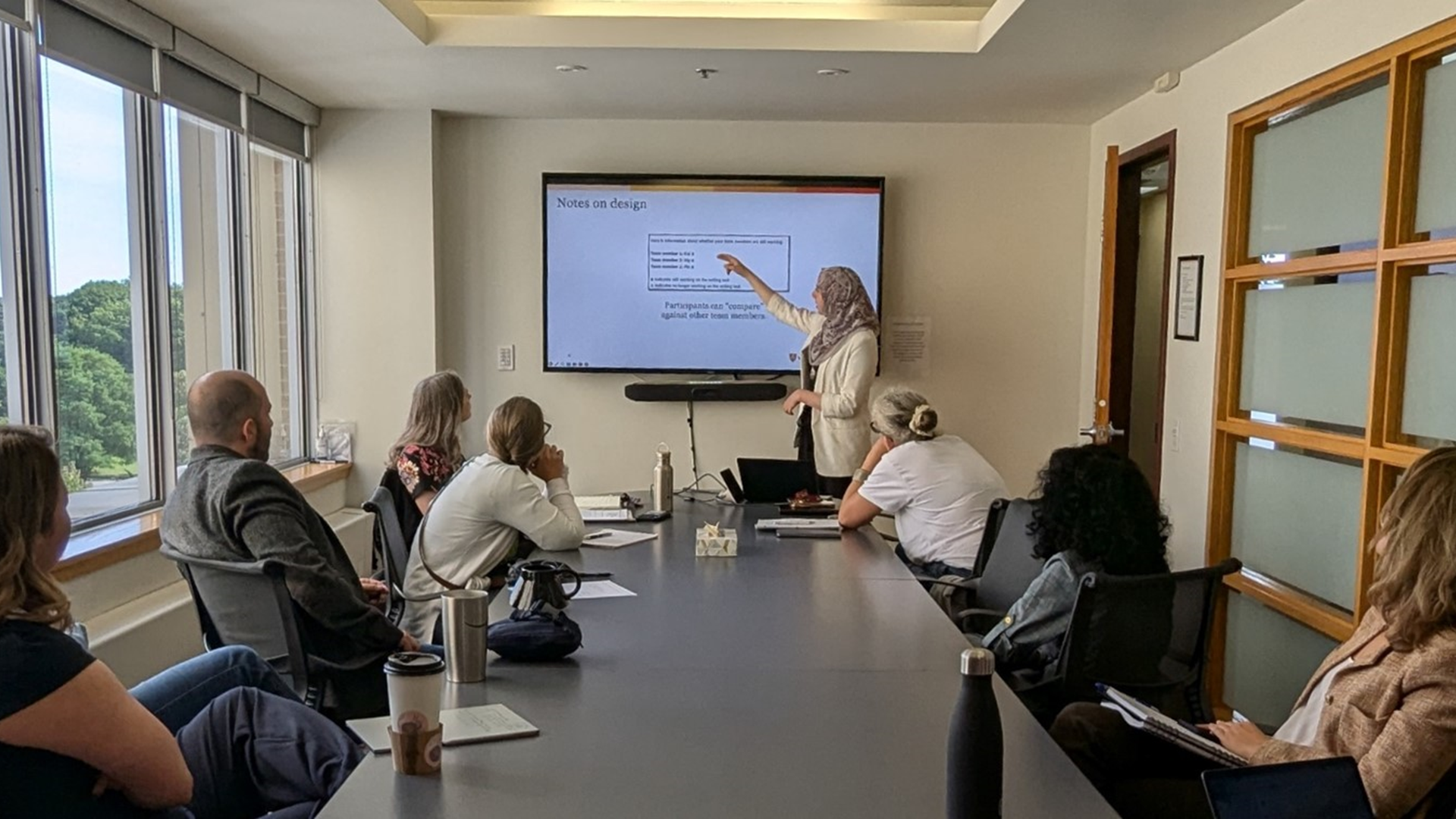HUMAN RESOURCES AND MANAGEMENT STRATEGIC PLAN | RESEARCH AND SCHOLARSHIP
Tariffs and Canadian jobs: Q&A with expert Catherine Connelly
February 25, 2025 ·
Contributed by: Joanna Williams and Andrea Lawson

In addition to impacting prices and industry, expect uncertainty over proposed U.S. tariffs to affect Canadian employment, says Catherine Connelly, professor of human resources and management at the DeGroote School of Business.
“Uncertainty can be just as damaging as an actual pay cut or a furlough,” says Connelly, who is the director of the McMaster Centre for Research on Employment and Work.
But Connelly also sees potential opportunities for Canadian employers and businesses.
We spoke with her about Canadian jobs and the potential ripple effect of tariffs on the Canadian economy.
How could these proposed 25 per cent tariffs impact employment across Canada?
The proposed tariffs would impact employment, but it would not be uniform across the board.
Some sectors are more exposed to this risk, like the automotive industry in Southwestern Ontario.
That sector would see an immediate and profound impact from the tariffs, and that would have ripple effects in the communities where those manufacturing centres are located. For example, a server at a local restaurant might see fewer customers and lower tips, leading to fewer shifts and reduced income.
Service sectors would also feel the impact indirectly, as people with less disposable income or job uncertainty might cut back on spending.
This could stall the housing market, delaying the expected spring rebound due to economic uncertainty. Consumer confidence would likely drop until the situation stabilizes.
For other sectors, the response is less predictable.
In the time since the tariffs were announced, there has been this groundswell of anger and patriotism, and people are cancelling trips to Florida and booking flights to B.C. and to the east coast. People are pledging to see their country first before they ever set foot in the U.S. again.
Tourism is frequently affected by economic shifts, but this is a different economic shift than what we’ve seen before.
What are some of the effects that could be felt by service industries?
Services covered by free trade agreements face uncertain impacts. Ontario Premier Doug Ford has said he isn’t going to hire any American companies for government services. In the past, a move like that would be completely prohibited by the free trade agreement, but suddenly that’s called into question.
This could be an opportunity for Ontario firms to pitch their services and secure government contracts. If the Ontario government decides to focus its efforts on hiring Ontario firms instead of American firms that might have been cheaper, then maybe this is an opportunity for Ontario firms to grow, expand and offer their services elsewhere.
Canada’s highly educated workforce, especially in financial services, AI and legal sectors, could benefit.
What does this uncertainty do to companies?
Companies may defer any kind of fixed cost purchase or any large purchase that can’t be undone, out of an abundance of caution and because of higher interest rates. They might rent something instead, so that they’re not locked in immediately and they can get out of it.
This includes hiring, as onboarding and severance costs make it a significant investment. Some companies might delay hiring until the situation stabilizes.
Other companies will see this as an opportunity to hire new employees or new graduates at lower rates. It will depend a little bit on the company and their own risk exposure, and how solvent they are.
What does this uncertainty do to workers?
Anybody who has a job will be wondering about how this affects the company where they work. Transparent communication from leadership can alleviate some fears — acknowledging uncertainty helps workers feel more at ease than if the issue is ignored.
That said, there is as much anger as there is fear. There’s a clear, identifiable and external threat. It’s not the same thing as generalized economic uncertainty.
People know exactly who to blame for this, and it makes people angry. To the extent that people are angry, they mobilize a little bit more.
Companies are very motivated right now to neutralize the threat posed by the Americans at this point and neutralize it by diversifying, which is a good business practice.
How might this uncertainty affect students and individuals who are early in their careers?
We can look back at the recession of 2008 for clues on what is going to happen to employment, especially for new graduates. Something like this can really set them back because that first job is a springboard for the next one, and then the rest of their career. If they can’t get that first job, it can really limit their career prospects as they might be overshadowed by newer graduates in a few years.
In light of these challenging times, what opportunities are available?
There are always opportunities. This is a moment where suddenly people are really starting to question even their own consumer purchases.
In the past, Canadian companies might have hidden the fact that they were Canadian and made sure that they had a dot com website. Now, they should redesign their logo and put a little Canadian flag on it.
Even if the trade war is completely averted, I think Canadians have long memories.
Just because we’re polite, it doesn’t mean we’re pushovers. I think years from now people will still be expressing a preference for Canadian homegrown products and services.















